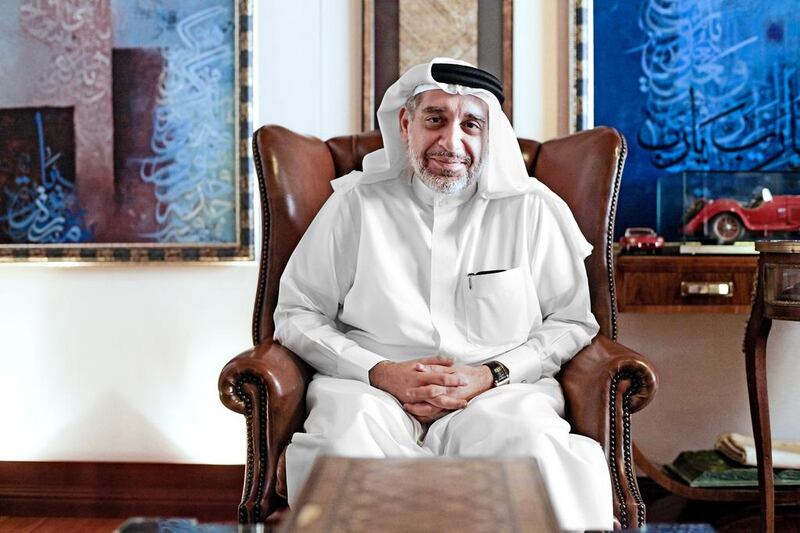Once Mishal Kanoo gets on a roll it is hard to stop him.
Our meeting was intended to discuss the challenges facing family businesses in the Arabian Gulf, a subject on which he, as the fourth generation representative of the eponymous family group, is well qualified to opine.
But he soon pulled the trigger of the Kanoo scattergun, and it was relentless. Governance, IPOs, bribery and corruption and corporate scandal all came within range and were shot down with a few iconoclastic bullets. Here’s a few examples:
“Some parts of Dubai are in the stone age when it comes to family business.”
“The worst thing you can do is to put a small-minded man in an important position. He has a vested interest in just protecting his job.”
“When executives get their hands caught in the cookie jar, it doesn’t mean they haven’t already eaten the cookies.”
“How can the authorities allow some companies to have IPOs with no track record and therefore no history of good corporate governance?”
But back to family business. Mr Kanoo, deputy chairman of the Kanoo Group, believes that the big merchant families of the Gulf are the backbone of the regional economies, and that of the UAE. Most of them came into being around the time Gulf states won independence in the 1970s, so now they are in the third generation of ownership. This creates its own tensions.
“In the past, there have been violent splits within families,” says Mr Kanoo, reeling off a list of some top UAE corporate names that have experienced succession problems, leading to splits and carve-ups.
“There have been failures in family businesses because of social pressures, egos and a sense of right, of entitlement. But how many family members are qualified to run the business, beyond the fact they have the family name? A small minority,” he believes.
Part of the problem lies in the blurred distinction between ownership and management, he says. “This has often happened because the chairman doesn’t want to give up the role. Of course he is benefiting and the company retains his family name. He conflates the role of chairman and CEO, and thinks being chairman means ‘I’m the boss’.
“The key question now is what happens to non-family members, how high can they go in the organisation? Can we ever imagine a situation where the chairman of the family business is a non-family member?”
The other question is how to protect minority family members who do not wish to be involved in the management, but who have an economic stake in the running of the business.
“Two crucial issues are protection of minorities and conflicts of interests. For example, at annual meetings, all family members should be invited to play a part, but equally there have to be mechanisms for family members to leave the company while protecting their interest in it,” Mr Kanoo says. Whose job is it to create an orderly environment for succession planning in family businesses?
“In the past, rulers have had to intervene. But it should not be the job of the ruler to get involved. We need independent bodies to do the work, with government backing,” he says.
“What is really needed is a family business court, a bit like a family court for divorce matters. If the next generation of a family business isn’t interested in carrying on, there has to be rules and regulations on exits and they have to be made enforceable.
“If you’re already a public company it’s easy, you just get a current valuation and notify the stock exchange of changes, but if you’re a family company it’s more difficult. For example, there would have to be an independent audit and then allow family shareholders to exit at the appropriate price,” he says.
Some big family companies are considering initial public offerings as a way to normalise succession issues, on the rationale that public listed status modernises the management structure of a company and brings with it benefits of corporate governance, transparency and disclosure.
That argument does not convince Mr Kanoo. “It is a fantasy that an IPO is some kind of elixir that will solve all family problems. That is not the case. If I release 25 per cent of the company on to the market, how does that help? What’s to stop somebody just buying up the shares in the market?”
He hammers home this view. “If you go down the IPO route you are opening Pandora’s box. Most families cannot deal with transparency and disclosure. They believe in selective disclosure, ‘you can see what I want you to see’. This is not breaking the rules, just living within the existing rules, which is why they need to be clarified and tightened.”
Talk of rule-breaking leads to the question of morality, which is one of Mr Kanoo’s favourite topics.
“It is a question of law versus morality. Most businessmen don’t want to work with a moral person, he’s perceived as too inflexible. There is also a perception that a successful person must have broken moral codes. The perception trumps the truth,” he says.
Bribery is another one of his hot topics. He recently told a Dubai conference that bribery and corruption were far more widespread than had been acknowledged, but had been swept under the carpet.
“Everybody condemns it, but will a businessman risk losing business in order to obey their morality? If families are taught that bribery is unacceptable, that should be enough.”
One thing is clear, he says. The age of the one-man company is over. “If a despot runs the family business, he has the business buried with him. It all breaks up and only the lawyers benefit.”
fkane@thenational.ae
Follow The National's Business section on Twitter





